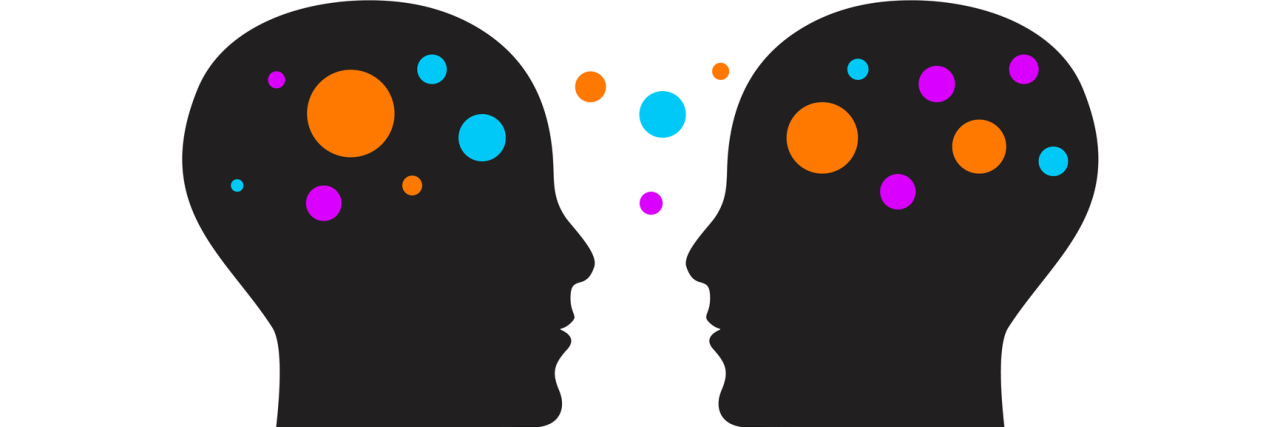Of all the types of depression that get discussed — major depressive disorder, exogenous depression, endogenous depression, bipolar depression — there’s one type that isn’t talked about very often: dysthymia. The word comes from Greek, where it is made up of “dys” (bad or ill) and “thymia” (mind or emotions). But in clinical terms, dysthymia has a more exact meaning than “ill humor” or “bad mood.” I had always assumed it came along a scale of severity that ranged from major depression through dysthymia to stability to hypomania to mania. It could be I was mistaken.
Johns Hopkins Medical has this to say: “Dysthymia is a milder, but long-lasting form of depression. It’s also called persistent depressive disorder. People with this condition may also have bouts of major depression at times.” So, it’s milder, but long-lasting, persistent, and may occur in people with major depression. Not very specific, is it?
Johns Hopkins also notes that to diagnose dysthymia, “an adult must have a depressed mood for at least two years (or one year in children and adolescents).”
Dysthymia seems like a “squishy” diagnosis, as the signs and symptoms overlap so greatly with major depressive disorder. Garden-variety depression or “major depressive disorder,” according to the Mayo Clinic, “affects how you feel, think, and behave and can lead to a variety of emotional and physical problems. You may have trouble doing normal day-to-day activities, and sometimes you may feel as if life isn’t worth living.” The risk factors and symptoms of the two disorders are extremely similar.
However, major depressive disorder, according to multiple sources, must last around two weeks, while dysthymia lasts for two years or more. Personally, I can’t see how this is called “milder.” Alternating between the two conditions is sometimes referred to as “double depression.”
I have thought of dysthymia as milder, and perhaps it is what I have now that my depression is pretty well controlled by medication and therapy. I no longer have extreme symptoms such as the self-harm and suicidal ideation.
Then again, one of my major depressive episodes lasted three years or more, with no visible letup. Was that relatively mild? It sure as hell didn’t feel like it.
Perhaps it doesn’t matter what you call it. The experience of the disorder seems to me more important than the label put on it. I haven’t looked the conditions up in the Diagnostic and Statistical Manual of Mental Disorders (DSM) as I don’t have a copy. But all my life I have been diagnosed with depression or major depression (before my diagnosis was changed to bipolar II with anxiety) and it seems pointless now to call myself dysthymic. Maybe I’ll ask my psychotherapist when I see her next week if she can shed any light on this confusing nomenclature. Maybe she’ll have a handle on which of these I technically have.
However you want to name it or frame it, though, I have — and probably have had since I was a child — some version of the disorder, and have applied the treatments for it (meds and therapy for both), and now experience occasional episodes of the “milder” version, though they certainly don’t last two years.
In a way, I wish the various authorities would make up their minds and quit changing the labels. In another way, I don’t care what the labels are (unless they affect insurance companies and what treatments they allow). I experience this disorder in the way I experience it. Most of the time, I simply call it depression, and I don’t see how it helps to subdivide it. When I hit rock bottom, I call it a major depressive episode. When I’m relatively stable, I call it “in remission.” These may not be the technically correct terms, but they’re what make sense to me.
I don’t know whether other people with bipolar disorder make these fine distinctions, or simply think of their shifting moods as lows and highs, depression and hypomania or mania, or whatever.
But do we really need more labels? Isn’t lived experience good enough? Does the definition affect how our doctors treat us? Are there going to be more subdivisions in the future (a trend which seems particularly rampant right now)? Does what we call it really help anyone get better?
Maybe I’m wrong here, but I don’t think so.
Getty image by tomozina

